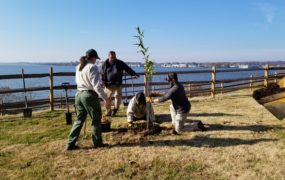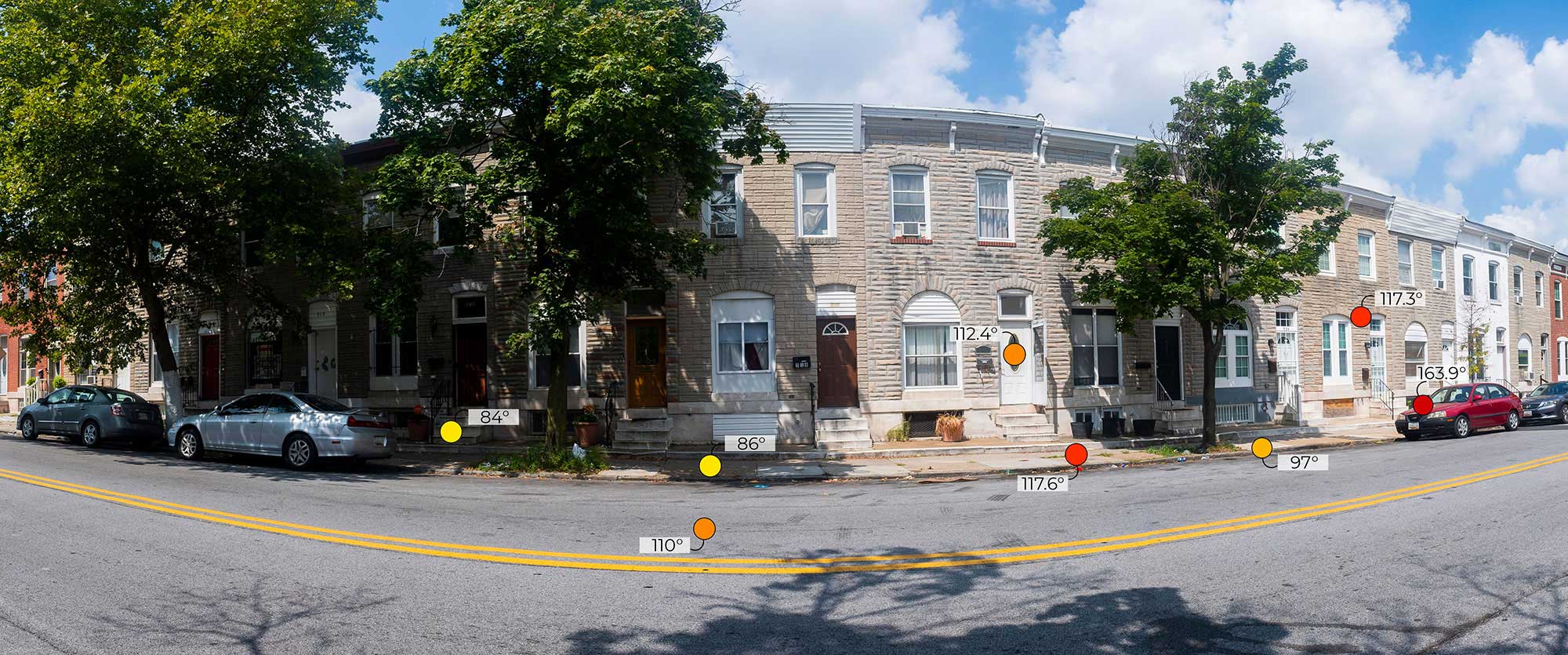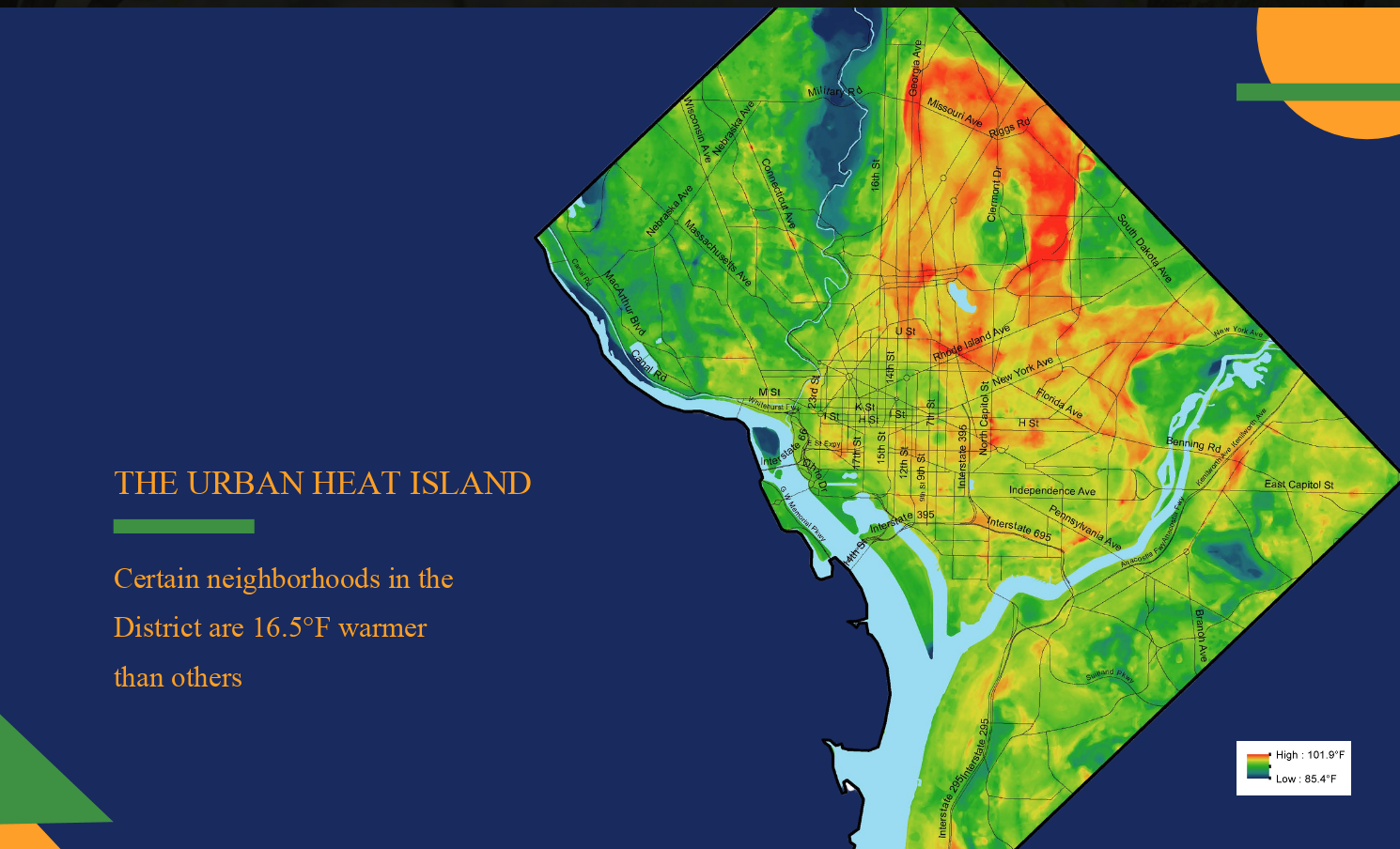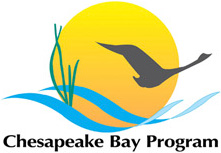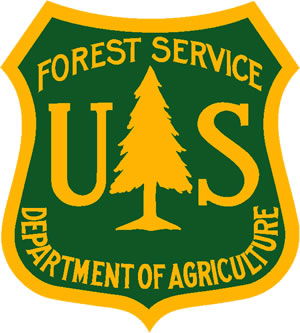Story by John Henderson, Executive Director, Parks Rx America
It is hard to comprehend the changes that have occurred in America since I attended the Chesapeake Tree Canopy Summit back in January. With most of us self-quarantined in our homes, we are experiencing firsthand the value of our investment in green infrastructure. Going outside is one of the few permissible activities. The quality of that outdoor experience depends greatly on the opportunity to interact with trees. I’m fortunate to have a park full of trees outside my home office window and our neighborhood sidewalks are lined with shade trees.
Park Rx America is about getting healthcare providers to write medical prescriptions to visit parks and natural areas. The concept is to leverage the trust-filled relationship between patient and doctor to get the patient outside in a nature-rich environment. These prescribed outdoor experiences will hopefully motivate patients to spend time in nature on their own. We also intend for this process to result in a group of people with an enhanced appreciation of nature and interest in park and forest stewardship.
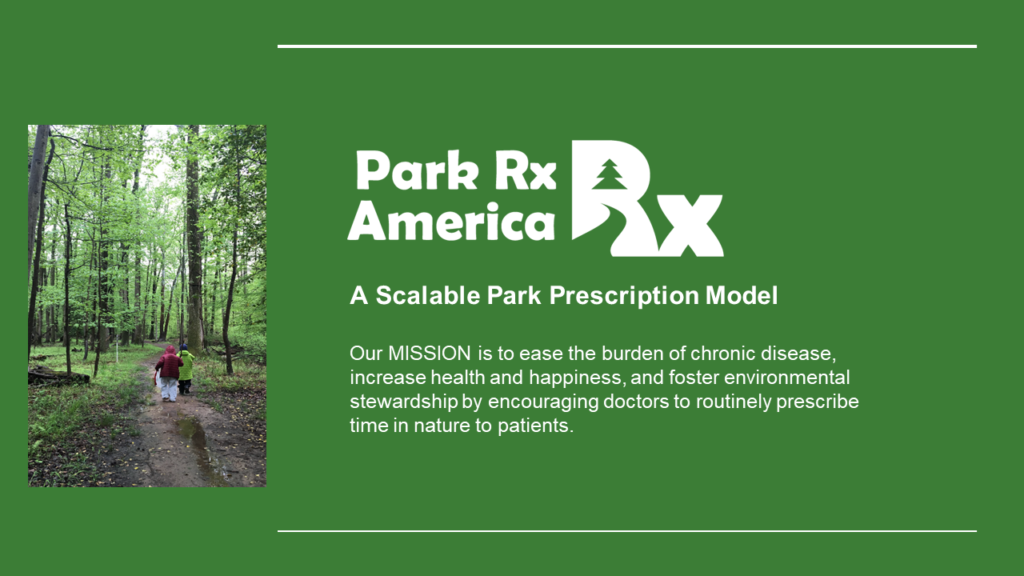
The average American spends 90-percent or more of their time indoors, effectively severing their relationship with the natural world. The biophilia hypothesis of scientist E. O. Wilson is the foundation of the work we do at Park Rx America. The hypothesis is that we have an innate biological attraction to nature and that when we sever that connection by not spending time outdoors in green settings, we deprive ourselves of an element that is essential for a healthy life. This divorce from nature makes us more vulnerable to a variety of chronic diseases, including diabetes, obesity, hypertension, anxiety, and depression.
At the tree canopy summit, I spoke of the future of the “nature as medicine” movement, in general and Park Rx, in particular. Research on the connection between nature and human health is a burgeoning field. We are witnessing an increase in both the amount and rigor of new research on the topic. The randomized controlled trial (RCT) is regarded as the gold standard in research. The National Institutes of Health now is conducting an RCT of park prescriptions using the Park Rx America model.
Park Rx is about connecting with near nature, i.e. the local park, garden, or greenspace. It is about valuing the time spent in your backyard or walking around the block under tree canopy because existing in these spaces makes you feel better. However, parks come in a spectrum of types and sizes; the same goes for the variety experiences that parks can provide.
The Maryland-National Capital Park and Planning Commission (M-NCPPC) Department of Parks in Montgomery County has assessed every acre of the County to determine the amount of parkland, the features in those parks, and the potential for the those parks to deliver experiences. Fundamental to this project is the concept that merely having access to parkland is insufficient. Montgomery County has established the ambitious goal of providing opportunities for physical activity, contemplation, and social interaction for every resident. As a partner with Montgomery County Parks, Park Rx America is aligning its platform with the concept of prescribing experiences.
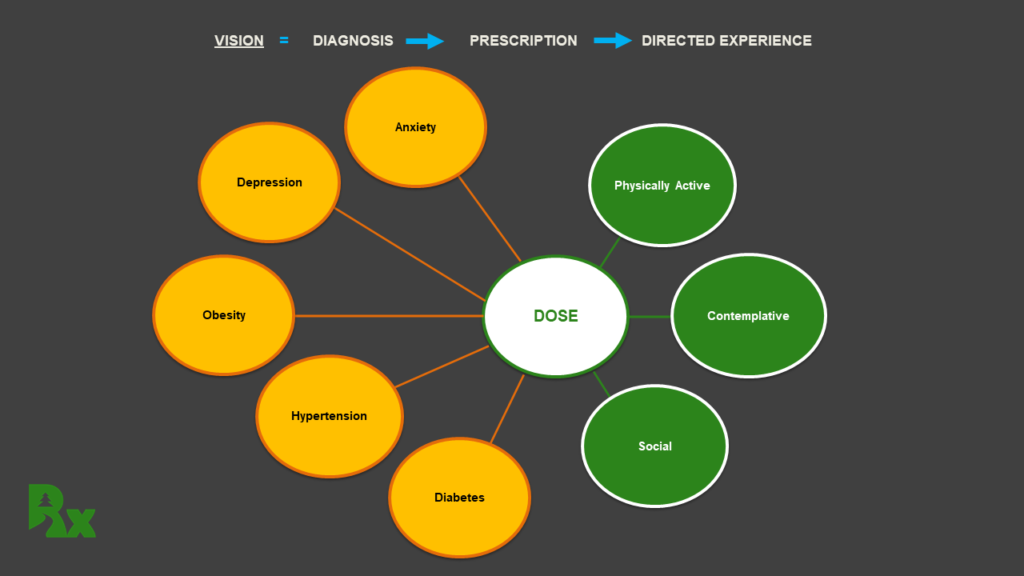
To fulfill that goal, we have partnered with the USDA Forest Service and the DC Department of Transportation Urban Forestry division to determine how to incorporate information about tree canopy into our database of park locations. The objective is to be able to provide real time information on when and where people can go to become immersed in a forest setting. Eventually, we would like to also include soundscape information to locate places where people can go to hear the sounds of nature, such as birds and insects. In combination, this information will allow people to find places to have a contemplative nature experience.
Ultimately, we want to apply the research findings so that prescriptions can be tailored to specific chronic diseases. For example, if the chemical released by a particular tree species has been shown to provide therapeutic value for persons with diabetes, we want to help people with or at risk for diabetes to find those near-by locations where that can get a therapeutic dose of exposure.
During these uncertain times, please go outdoors and become mindful of your natural surroundings. Disconnect from your electronics to smell the air, watch the clouds, or look at the trees. It is amazing how refreshed, de-stressed, and refocused you can become in a matter of minutes.
